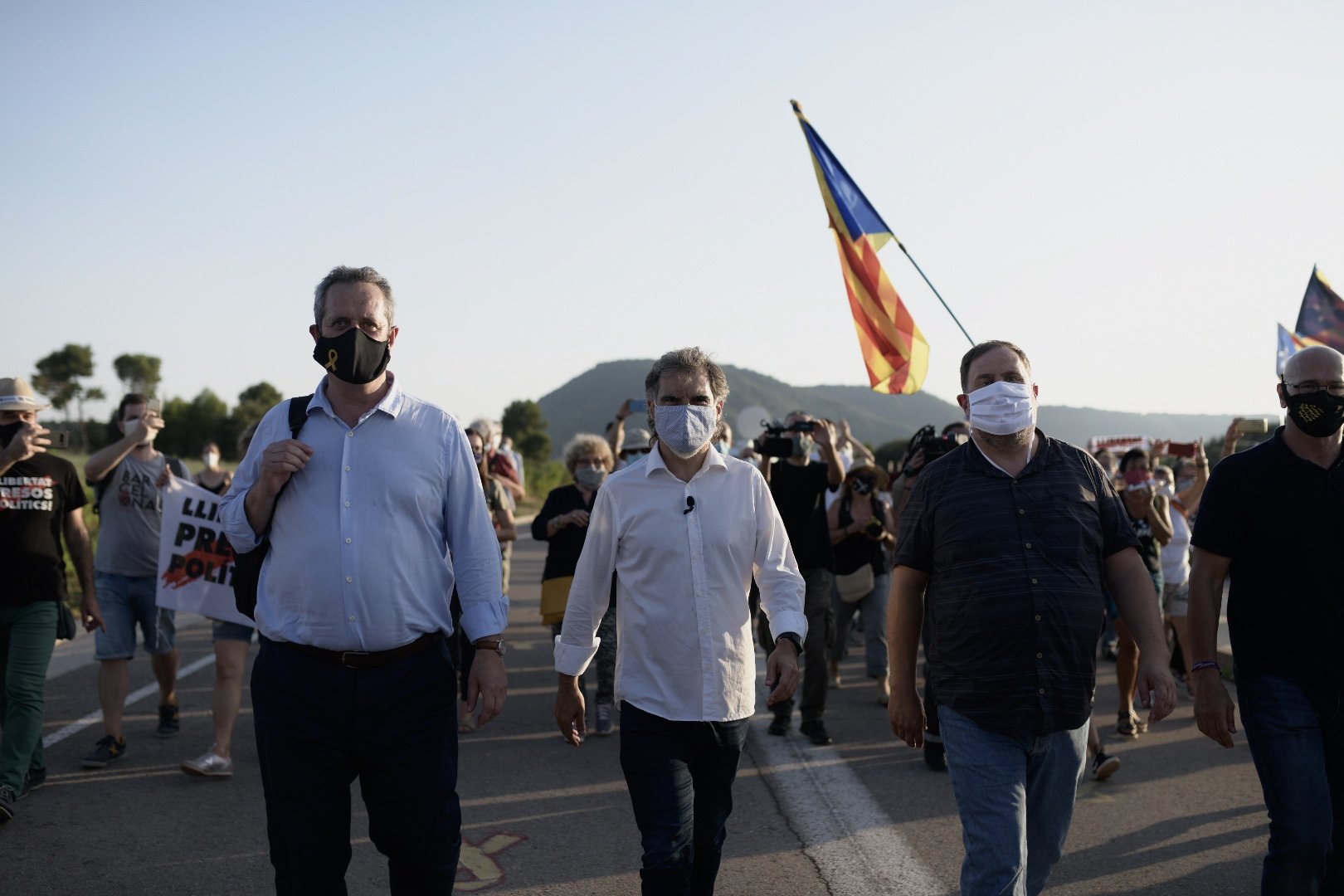UN Special Rapporteur on Torture Nils Melzer has said he sees it as "problematic" that states do not follow UN recommendations. He was referring directly to the Spanish state's failure to comply with the resolution by the Working Group on Arbitrary Detentions which demanded the immediate release of the Catalan political prisoners.
This was his response when asked about the matter at the opening of the Barcelona Human Rights Film Festival, which will premiere the film "The war on journalism: The case of Julian Assange", made with the participation of Julian Assange's father, John Shipton. Nils Melzer focused his speech on the alleged psychological torture of Assange and said that he has not had "a fair trial" in the legal proceedings he has faced so far.
On December 1st, the festival will premiere the film on the Assange case, which is directed by Juan Luis Passarelli. It will be launched at a crucial time in the legal proceedings, since January 4th is the date when the British judiciary says it will release its decision on whether or not allow his extradition.
In addition to asserting that the trial will not have a "fair resolution", Melzer denounced the creation by governments of an anti-Assange "public narrative" which attempts to "criminalize the truth", and for that reason especially he spoke of his concern about states that are "non-cooperative". In addition, John Shipton, Assange’s father, spoke about his son’s current situation, saying that “Julian is resilient” and that “after ten years of torture he has a strong spirit”.
Spain's disobedience
Despite the UN's insistence that the Spanish government needs to comply with the resolution of its Working Group on releasing seven pro-independence Catalan prisoners, the Spanish government has always avoided taking any action and as well has sought to discredit the work and neutrality of the body. Specifically, Spanish authorities have stated that "the report raises doubts about its independence and impartiality", and that the body has been used "for spurious purposes". They also see an attempt at "interference" in the Spanish judicial process that has now given its verdict, and attribute this to "manipulation and misinformation."
For his part, the chairman of the UN Working Group on Arbitrary Detention, Antonio Guevara, described the Pedro Sánchez government's "accusations" on the Working Group as "disproportionate". The Spanish comments, he said “attack the messenger and do not directly address the problematic situation identified in the two reports". He added that "such attacks are uncommon in the context of countries in the diplomatic world".

